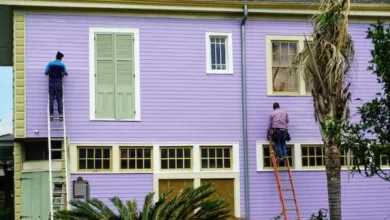Miami-Dade County Consumer Services Department wants you to be ready for hurricane season
MIAMI – Hurricane Season is officially here and with weather forecasters predicting an above-average season this year, now is the time to prepare. Hurricane preparedness isn’t just about protecting your family and property against the effects of extreme wind and rain. It’s also about creating an emergency plan for yourself and your family ahead of time by organizing the important documents you might need in case of an emergency.
Check your insurance
Review all current insurance policies before the storm season, especially flood or property insurance. A policy that was written several years ago may not reflect the value of your home today, especially if you’ve made additions or renovations. Inquire if any home, health, or other insurance policy you may have will pay for temporary shelter, replacement clothing, furniture, or other items if you are affected by a hurricane.
If you are a renter, it is a good idea to purchase renters insurance. This may come as a shock to you, but most landlord tenant leases do not protect your personal property in the event of a hurricane. It is a common misperception among renters that they are covered by their landlord’s insurance. Your landlord’s insurance is not going to protect your personal property- it only protects the building. It is a very good idea for you to buy renters insurance. This policy will pay you if your personal property is damaged or stolen. Renters insurance can cover fire and smoke damage, theft, vandalism, damage from windstorms and hail, damage from explosions, water damage from plumbing problems, and many other hazards. It also protects you from liability if an accident happens in your home and may pay your temporary living expenses if an emergency forces you to leave your home.
Flood proof your home
Flood zones are rated on a standard used by most federal and state agencies. How likely is it that a flood will hit your home? Use the online Flood Zone Finder to determine the risk level for your home. If you live in a flood zone, find out whether you can do anything to flood proof your home now. Also, purchase flood insurance and visit the Federal Emergency Management Agency’s floodsmart.gov to obtain more information.
Take an inventory of your property
Take an inventory of your personal property, such as clothes, jewelry, furniture, computers and audio/video equipment, and document it with photos and/or a video. Keep sales receipts in a safe place along with the model and the serial numbers of the items in your household. This will make filing a post hurricane/disaster insurance claim much simpler.
Secure your documents
Secure all of your important documents and valuables in a safe location and store them in waterproof containers, or in a safe deposit box. This includes but is not limited to birth certificates, marriage certificates, social security cards, passports, and automobile and homeowners insurance documents. If evacuation is required, take the items with you.
Just because there were no direct hits to Miami-Dade last year, doesn’t mean we should sit back and wait to see what happens this year. In a coastal community such as ours, it should never be a question of “if” a hurricane will strike us. It should be a question of “when”. Hurricane preparedness is mostly quick and easy if you start early.
The Miami-Dade Consumer Services Department (CSD) encourages all residents to inform themselves about their rights as consumers as part of their preparation for the hurricane season. Consumers who are aware of their rights well in advance of any disaster, and of the scams which often follow in the wake of these events, will be better able to make informed choices.
Visit, http://www.miamidade.gov/csd/consumer_fraud.asp to obtain more information on how you can protect yourself from consumer fraud in the event that a hurricane should strike South Florida.




